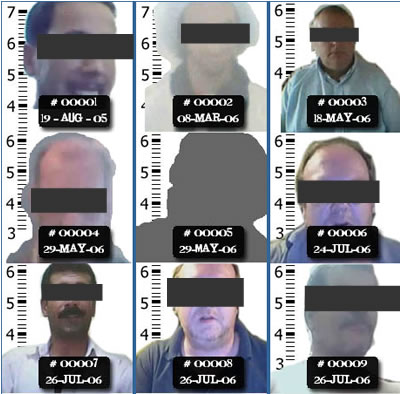 As new media continues to challenge the traditional means of delivering music, video and other digital content, copyright lawyers can expect to get rich in the legal fall out.
As new media continues to challenge the traditional means of delivering music, video and other digital content, copyright lawyers can expect to get rich in the legal fall out.
Universal are the latest media group to get on the blower to their legal boys, filing a case against the social networking site, MySpace.com.
Universal claims that MySpace, “encourages, facilitates and participates in the unauthorised reproduction, adaptation, distribution and public performance,” and is seeking unspecified damages, including up to $150,000 for each unauthorised music song or video uploaded on to the Website.
MySpace’s botty-covering tactic of making users agree to grant the Website a license to publish uploaded content isn’t washing with the Universal legal team, who insist that they have no such authority over works they don’t own.
“A willing partner in theft”
The complaint, filed at the US District Court, claims that “MySpace is a willing partner in that theft,” observing that most of the media slapped up its pages aren’t generated by users, but purloined from copyright owners.
MySpace hit back in a statement, insisting that they are in full compliance with copyright laws:
 “We have been keeping UMG closely apprised of our industry-leading efforts to protect creators’ rights, and it’s unfortunate they decided to file this unnecessary and meritless litigation,” the statement said.
“We have been keeping UMG closely apprised of our industry-leading efforts to protect creators’ rights, and it’s unfortunate they decided to file this unnecessary and meritless litigation,” the statement said.
“We provide users with tools to share their own work – we do not induce, encourage, or condone copyright violation in any way.”
Universal were having none of it, claiming that their, “music and videos play a key role in building the communities that have created hundreds of millions of dollars of value for the owners of MySpace.”
“Our goal is not to inhibit the creation of these communities, but to ensure that our rights and those of our artists are recognised,” the statement added.
 The UK first case of Web-rage to go through the courts has reached sentencing.
The UK first case of Web-rage to go through the courts has reached sentencing. When Jones opened the door of his house – with a knife of his own, he was severely attacked.
When Jones opened the door of his house – with a knife of his own, he was severely attacked. The US is responsible for a fifth of the world’s spam, according to security firm Sophos.
The US is responsible for a fifth of the world’s spam, according to security firm Sophos. Most unsolicited emails are churned out by zombie PCs. These don’t walk towards you, arms outstretched and making funny groaning noises, but are computers that have been silently infected with Trojans, worms and viruses that turn your lovely PC into a spam-spewing beast.
Most unsolicited emails are churned out by zombie PCs. These don’t walk towards you, arms outstretched and making funny groaning noises, but are computers that have been silently infected with Trojans, worms and viruses that turn your lovely PC into a spam-spewing beast. New figures from the UK payments association Apacs reveal that online bank fraud losses rose a whopping 55% to £22.5m in the first six months of 2006.
New figures from the UK payments association Apacs reveal that online bank fraud losses rose a whopping 55% to £22.5m in the first six months of 2006. Another 44% were also guilty of letting the cards out of their sight when paying bills is places like restaurants and bars, with more than half of all online shoppers (51%) never bothering to check that they’re using a secure website address starting with “https” before buying online.
Another 44% were also guilty of letting the cards out of their sight when paying bills is places like restaurants and bars, with more than half of all online shoppers (51%) never bothering to check that they’re using a secure website address starting with “https” before buying online. [From
[From  The influential UK thinktank, Institute for Public Policy Research (ippr), announced on Sunday that they thought that UK copyright law should be updated to include a “private right to copy,” clause to legalising the personal copying of CDs to portable music players. They also recommend that there should be no extension to the current 50-years copyright term.
The influential UK thinktank, Institute for Public Policy Research (ippr), announced on Sunday that they thought that UK copyright law should be updated to include a “private right to copy,” clause to legalising the personal copying of CDs to portable music players. They also recommend that there should be no extension to the current 50-years copyright term. Google will soon be offering free music videos on its Google video Web site after striking a deal with industry bigwigs, Sony BMG Music Entertainment and Warner Music Group.
Google will soon be offering free music videos on its Google video Web site after striking a deal with industry bigwigs, Sony BMG Music Entertainment and Warner Music Group. “Our partnership with Google is rooted in the pioneering approach we’ve used to offer fans more music, while benefiting artists and protecting copyrights,” gushed Warner Music in a press release.
“Our partnership with Google is rooted in the pioneering approach we’ve used to offer fans more music, while benefiting artists and protecting copyrights,” gushed Warner Music in a press release. Google has said that it will be offering further access to Sony and Warner’s hefty audio-visual catalogues in the coming months through partner Web sites in its AdSense network.
Google has said that it will be offering further access to Sony and Warner’s hefty audio-visual catalogues in the coming months through partner Web sites in its AdSense network. Two UK lads, Gary and Ash, have taken upon themselves to go into Internet chats, posing as a 13 year old girl and converse with various men who happened across them.
Two UK lads, Gary and Ash, have taken upon themselves to go into Internet chats, posing as a 13 year old girl and converse with various men who happened across them.
 Pesky phone thieves may get more than they bargained for if a new anti-theft system proves a hit with punters.
Pesky phone thieves may get more than they bargained for if a new anti-theft system proves a hit with punters. Mark Whiteman, managing director of Remote XT, said: “Theft-proof phones spell disaster for the huge criminal industry that has profited from mobile theft for too long”
Mark Whiteman, managing director of Remote XT, said: “Theft-proof phones spell disaster for the huge criminal industry that has profited from mobile theft for too long” Millions of game-toughened poker faces are showing signs of impending blubbering as the US Congress unexpectedly passed anti-online gambling laws last week.
Millions of game-toughened poker faces are showing signs of impending blubbering as the US Congress unexpectedly passed anti-online gambling laws last week. The new laws will wipe out US revenue for London-based online-gaming companies, with PartyGaming saying that they’d suspend business with US residents as soon as the law takes effect.
The new laws will wipe out US revenue for London-based online-gaming companies, with PartyGaming saying that they’d suspend business with US residents as soon as the law takes effect. “After taking extensive legal advice, the Board of PartyGaming Plc has concluded that the new legislation, if signed into law, will make it practically impossible to provide US residents with access to its real money poker and other real money gaming sites. As a result of this development, the Board of PartyGaming has determined that if the President signs the Act into law, the Company will suspend all real money gaming business with US residents, and such suspension will continue indefinitely, subject to clarification of the interpretation and enforcement of US law and the impact on financial institutions of this and other related legislation.”
“After taking extensive legal advice, the Board of PartyGaming Plc has concluded that the new legislation, if signed into law, will make it practically impossible to provide US residents with access to its real money poker and other real money gaming sites. As a result of this development, the Board of PartyGaming has determined that if the President signs the Act into law, the Company will suspend all real money gaming business with US residents, and such suspension will continue indefinitely, subject to clarification of the interpretation and enforcement of US law and the impact on financial institutions of this and other related legislation.” Warner Music Group has announced a deal with YouTube to distribute music videos, as well as extras such as band interviews, behind-the-scenes footage and artist rockumentaries.
Warner Music Group has announced a deal with YouTube to distribute music videos, as well as extras such as band interviews, behind-the-scenes footage and artist rockumentaries. “As user-generated content becomes more prevalent, this kind of partnership will allow music fans to celebrate the music of their favourite artists, enable artists to reach consumers in new ways, and ensure that copyright holders and artists are fairly compensated,” he continued.
“As user-generated content becomes more prevalent, this kind of partnership will allow music fans to celebrate the music of their favourite artists, enable artists to reach consumers in new ways, and ensure that copyright holders and artists are fairly compensated,” he continued.